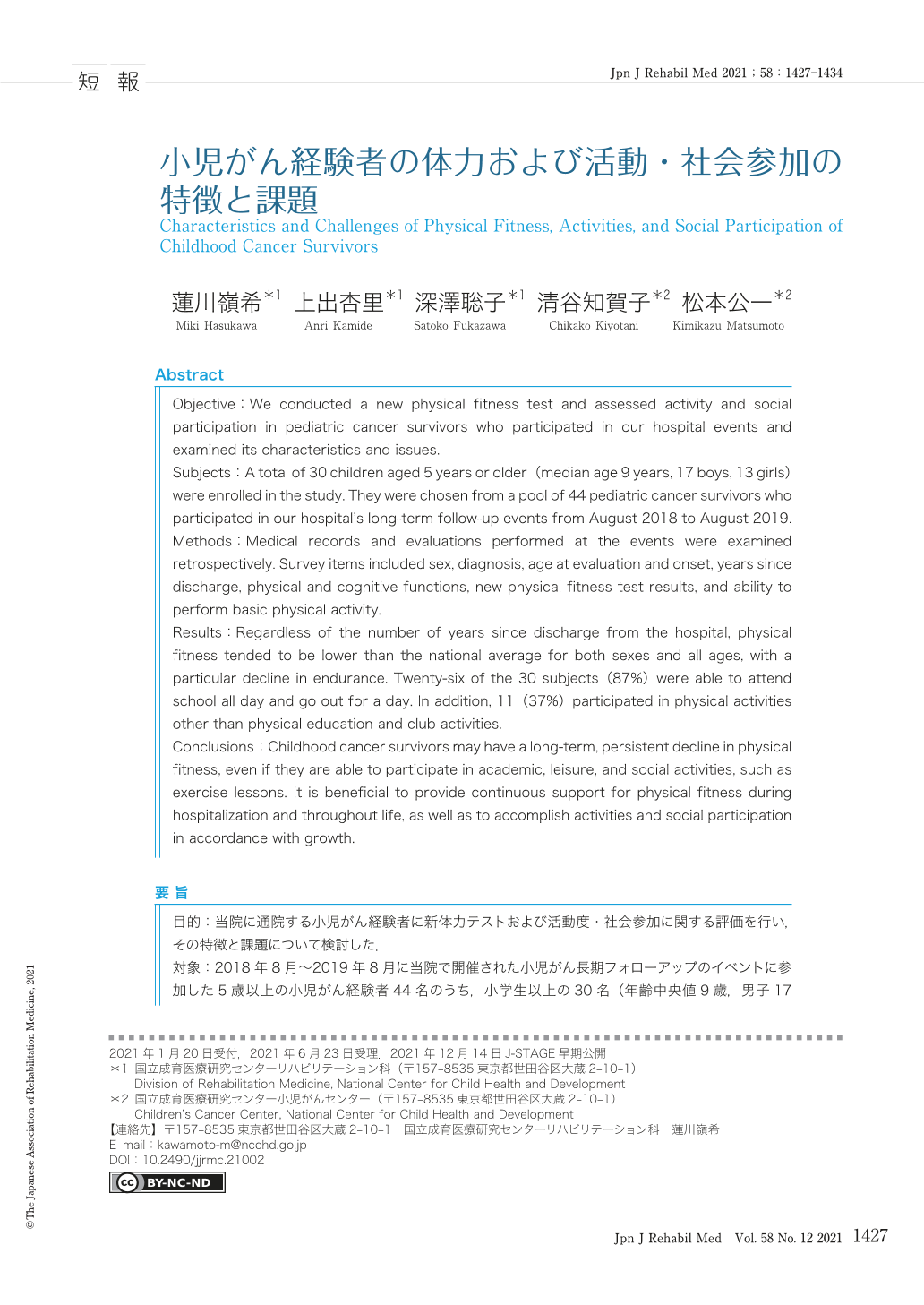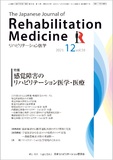Japanese
English
- 販売していません
- Abstract 文献概要
- 1ページ目 Look Inside
- 参考文献 Reference
要旨
目的:当院に通院する小児がん経験者に新体力テストおよび活動度・社会参加に関する評価を行い,その特徴と課題について検討した.
対象:2018年8月〜2019年8月に当院で開催された小児がん長期フォローアップのイベントに参加した5歳以上の小児がん経験者44名のうち,小学生以上の30名(年齢中央値9歳,男子17名,女子13名).
方法:カルテおよびイベントでの評価を後方視的に調査した.調査項目は性別,診断名,評価時・発症時年齢,退院後経過年数,身体機能および認知機能,体育以外の習い事や部活動での運動参加の有無,新体力テスト,小児活動・社会参加評価スケールなどである.
結果:体力は退院後の経過年数にかかわらず,男女および全年齢に共通して全国平均よりも低い傾向を示し,特に持久力が低下していた.また,今回の対象の30名中26名(87%)は全日の登校や1日かけての外出が可能であり,さらに11名(37%)は,体育以外の習い事や部活動での運動に参加していた.
結論:小児がん経験者は,学校や余暇活動,運動の習い事などの社会参加を果たしていても,体力の低下を長きにわたって抱えていると考えられる.入院中から生涯にわたる継続的な体力への支援と,成長に応じた活動や社会参加の実現が望まれる.今後は疾患や治療内容別による体力の比較検討を行い,活動・社会参加の背景からも体力低下の要因を明らかにしていくことが課題である.
Objective:We conducted a new physical fitness test and assessed activity and social participation in pediatric cancer survivors who participated in our hospital events and examined its characteristics and issues.
Subjects:A total of 30 children aged 5 years or older (median age 9 years, 17 boys, 13 girls) were enrolled in the study. They were chosen from a pool of 44 pediatric cancer survivors who participated in our hospital's long-term follow-up events from August 2018 to August 2019.
Methods:Medical records and evaluations performed at the events were examined retrospectively. Survey items included sex, diagnosis, age at evaluation and onset, years since discharge, physical and cognitive functions, new physical fitness test results, and ability to perform basic physical activity.
Results:Regardless of the number of years since discharge from the hospital, physical fitness tended to be lower than the national average for both sexes and all ages, with a particular decline in endurance. Twenty-six of the 30 subjects (87%) were able to attend school all day and go out for a day. In addition, 11 (37%) participated in physical activities other than physical education and club activities.
Conclusions:Childhood cancer survivors may have a long-term, persistent decline in physical fitness, even if they are able to participate in academic, leisure, and social activities, such as exercise lessons. It is beneficial to provide continuous support for physical fitness during hospitalization and throughout life, as well as to accomplish activities and social participation in accordance with growth.

Copyright © 2021, The Japanese Association of Rehabilitation Medicine. All rights reserved.


